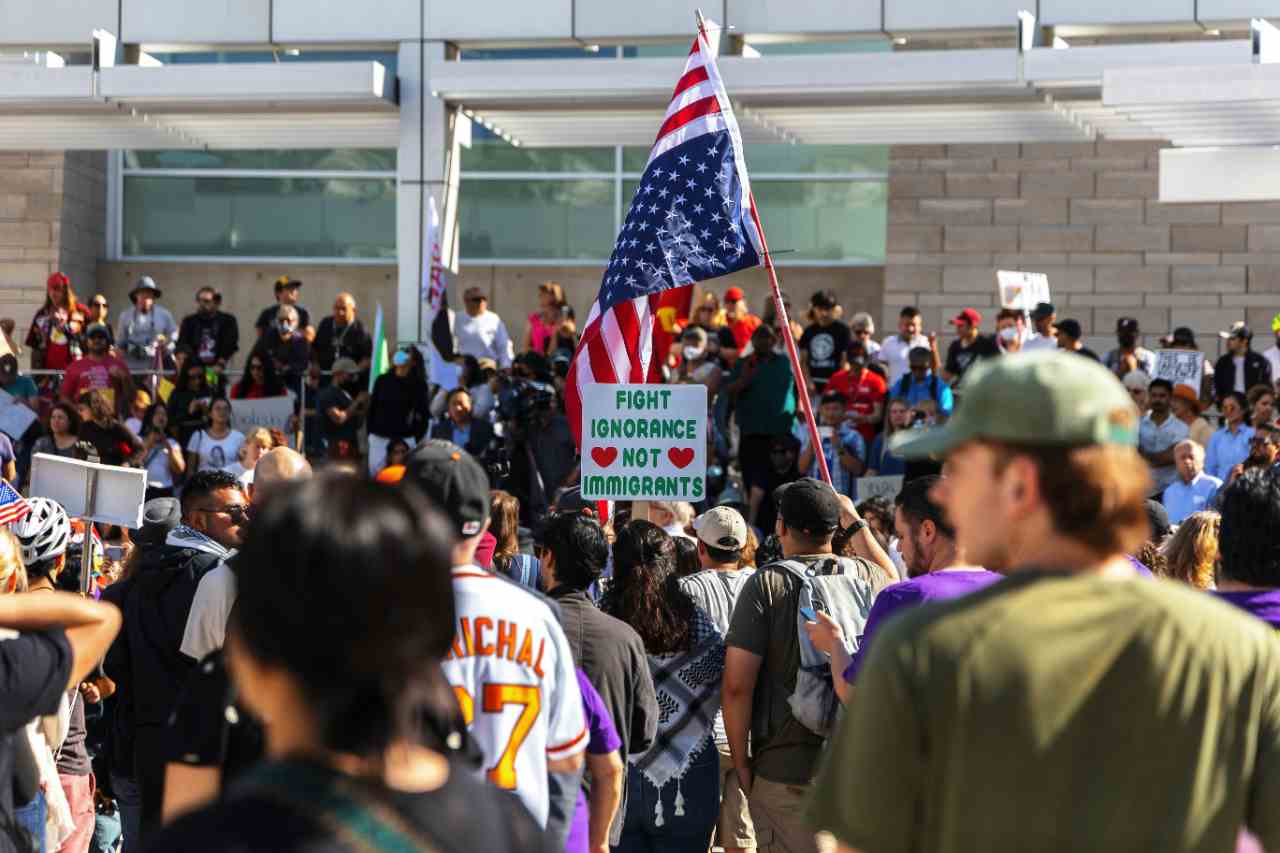(U.S. factories report sharp losses of immigrant workers in 2025 as enforcement tightens and adjudications harden, driving higher overtime, missed shifts, and production delays across shop floors nationwide.)
Plant managers say fear of re‑verification, audits, and contact with authorities is pushing people to quit or avoid job changes, with effects most visible in sites that rely on recent arrivals and mixed‑status families.

What changed most in recent weeks
- As of August 1, 2025, USCIS officers may deny family‑based green card filings without first issuing RFEs or NOIDs, according to practitioner reports. Lawyers warn even small mistakes can bring denials and possible removal risk, which discourages eligible employees from filing or renewing work permission and from switching jobs that trigger a new Form I‑9 check.
-
The State Department is piloting refundable visa bonds up to $15,000 for some B‑1/B‑2 visitors from Malawi and Zambia, creating extra friction for short technical trips and family visits.
-
DHS and State have proposed a passport‑scan rule for Diversity Visa entries for the 2026 lottery to curb fraud. If finalized this fall, another path to permanent residence could narrow for future factory hires.
-
President Trump’s January 20, 2025 orders call for “complete operational control” at the southern border, more vetting, faster removals, and pressure on countries that refuse returns. Some parts face lawsuits, but the message has changed behavior across communities.
Why factories feel it now
Manufacturers report faster attrition among crews with many recent arrivals. Workers skip DMV visits, avoid court dates, decline shift transfers, or refuse promotions that require new paperwork. Others leave high‑profile worksites after enforcement actions or rumors of audits.
The operational effects are tangible:
- Longer time‑to‑fill for machine operators, welders, and assemblers.
- More overtime for remaining staff.
- Higher injury risk and occasional line stoppages due to understaffing.
Family‑based cases matter because they are a main path to work permission. The new denial posture chills filings in mixed‑status households, especially when paystubs, leases, or old traffic records are hard to gather. Employers see people stay put rather than risk a fresh Form I‑9.
Compliance pressure points
- Form I‑9: Employers must verify identity and work permission for every hire. See the official USCIS page for
Form I‑9at https://www.uscis.gov/i-9. Managers say fear of re‑verification has grown, especially after site visits or news of audits. -
Family filings: Many shop‑floor employees depend on family petitions. Official resources for
Form I‑130(Petition for Alien Relative) are at https://www.uscis.gov/i-130, andForm I‑485(Adjustment of Status) at https://www.uscis.gov/i-485. With denials possible without RFEs, many families now seek attorney review before filing.
According to analysis by VisaVerge.com, an enforcement‑first posture in 2025, combined with new procedural hurdles, has tightened labor pools in sectors that count on steady inflows of work‑authorized residents.
Current status as of August 11, 2025
- Executive orders remain in effect unless blocked. A birthright citizenship order is paused, but orders on border enforcement, vetting, and refugee “realignment” continue to shape processing and daily choices.
-
USCIS issued ongoing policy updates and continues to implement the April 2024 fee rule. The August shift in family adjudications is driving a fresh chill in filings among factory families.
-
DHS also directs faster voluntary departure and possible visa sanctions for countries that refuse returns, raising anxiety for people with fragile status.
A case on the line
Consider a plastics plant in Ohio that relies on recent arrivals hired through a staffing firm.
- After an audit rumor, five immigrant workers resign in a week.
- Two more skip a shift change that would have required a new Form I‑9.
- A team of 28 must run three presses meant for 36 operators.
- Overtime climbs, and a minor injury halts one line for half a day.
- A specialized technician from Zambia, booked on short notice for a repair, delays travel because of the bond pilot.
The backlog grows, and Saturday work becomes standard. None of this shows up in federal data yet, but it tracks with what legal groups and employer coalitions describe in 2025.
Community effects
Local bars and civil rights groups report lower school and clinic engagement among immigrant families in factory towns. People trim trips, skip public‑facing agencies, and spend less, echoing the broader chill from 2025 orders and policy shifts.
Reduced civic engagement and avoidance of public services increase isolation and make routine activities—like healthcare access and school participation—harder for families.
Background and what’s next
By late 2024, universities warned of longer consular processing, tighter screening, and talk of mass removals in 2025. That forecast is now showing up on the factory floor.
- From January through April 2025, the White House issued orders covering border rules, vetting, asylum, refugees, and birthright citizenship. At least one order is in court, but the overall posture has shifted.
-
Summer brought harder family adjudications at USCIS, a visa bond pilot at State, and a proposed passport requirement for the 2026 Diversity Visa lottery. If finalized this fall, the DV change will close another door often used by future production workers in smaller metros.
-
Agencies have previewed tougher H‑1B selection favoring higher wages and a harder citizenship test, changes that could pinch maintenance and engineering pipelines that support throughput.
Employers are adjusting in real time while courts weigh challenges to parts of 2025 orders, leaving policies in flux across towns.
What employers can do now
- Audit Form I‑9s with counsel, fix technical errors, and keep the same policy for all staff.
- Use E‑Verify properly: help employees resolve Tentative Nonconfirmations, and don’t act before final results.
- For family cases, align records with lawful status, and consider attorney‑prepared filings given RFE‑less denials.
- Cross‑train, set overtime caps, and keep a clear plan for audits, with one point person and counsel on call.
How to stay informed
For policy updates, see the USCIS Policy Manual updates page: https://www.uscis.gov/policy-manual/updates.
Actionable takeaways
- Workers: Ask questions before shift changes that require a new Form I‑9, and keep key documents current.
- Employers: Budget for bond pilots and short‑notice absences, and prioritize safety to reduce injuries from overtime.
- Communities: Support trusted legal clinics and deliver clear messages that reduce panic and help families keep daily routines.
Production can stabilize, but it will take steady compliance, clear communication, and patience from every group on the floor.
This Article in a Nutshell
Factories nationwide report staffing crises as 2025 enforcement changes chill family filings and short technical trips. Employers face longer vacancies, more overtime, and safety risks. USCIS denial posture and a $15,000 visa bond pilot deter workers and technicians, forcing audits, counsel-led filings, cross-training, and urgent operational adjustments to sustain production.













